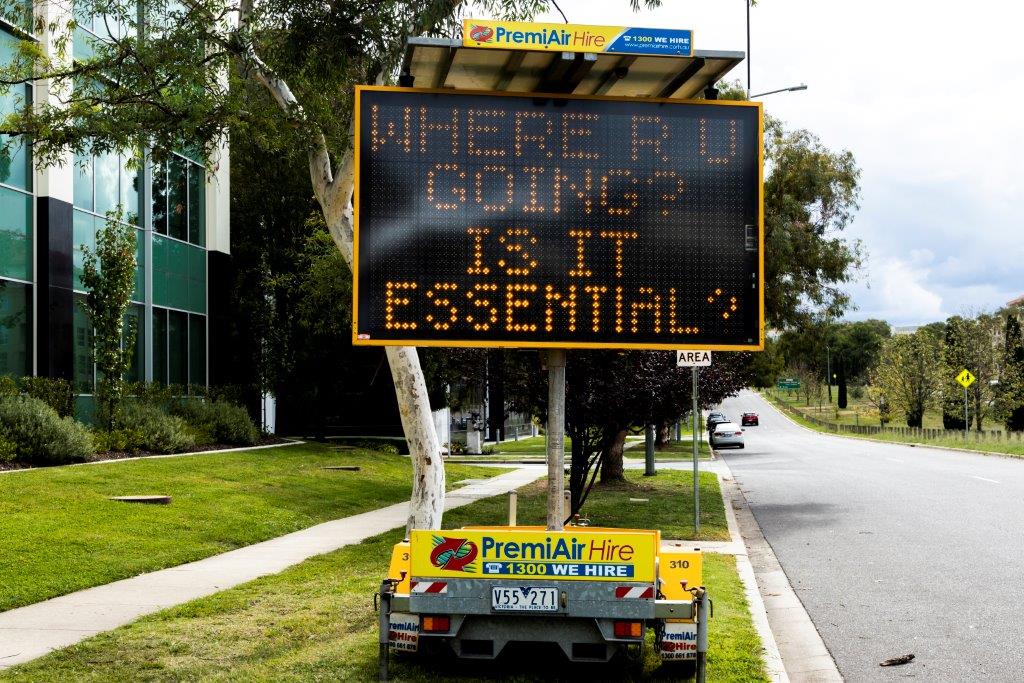Canberrans should give themselves a pat on the back today, as the ACT records 100 days without a confirmed COVID-19 case. Since the national capital’s first case was confirmed on 12 March, the ACT has recorded 113 cases of the virus in total, three deaths and 110 recovered cases.
See below for a timeline of the COVID-19 pandemic of 2020.
COVID-19 Timeline in Canberra
12 March
The first case of coronavirus was confirmed in the ACT.
16 March
The second case of coronavirus was confirmed in the ACT and Health Minister Rachel Stephen-Smith declared a public health emergency for the first time in the Territory’s history.
Restrictions introduced on this day:
- the prohibition of non-essential outdoor gatherings of 500 or more persons in a single space.
- the prohibition of non-essential indoor gatherings of greater than 100 people.
- the self-quarantine of people who enter the ACT following a flight that originated in a place outside of Australia.
- Limits on dispensing and sales of prescription medication.
- One visitor per day at hospitals.
20 March
EPIC drive-through testing clinic opens.
23 March
Restrictions introduced on this day:
- Pubs and registered clubs closed.
- Gyms an indoor sporting venues closed.
- Cinemas, entertainment venues, casinos and nightclubs closed.
- Restaurants and cafes are restricted to takeaway and/or home delivery.
- Religious gatherings and congregations at places of worship are prohibited (excluding small weddings and funerals that comply with the four square metre rule).
25 March
Restrictions introduced on this day:
- Food courts, open homes and real estate auctions, beauty salons, tattoo and massage parlours, arcades, and indoor and outdoor play centres closed.
- Hairdressers and barbers have a 30-minute limit per customer.
- Elective surgery other than category 1 and urgent category 2 are suspended.
29 March
Restrictions introduced on this day:
- Public gatherings, excluding household members, have been reduced to a maximum of two people in the ACT.
The Federal Government issues a warning to all Australians to stay home unless shopping for essentials, receiving medical care, exercising or travelling to work or education.
30 March
The first death from COVID-19 was recorded in the ACT and was confirmed to be linked to the Ruby Princess cruise ship.
4 April
The second death from COVID-19 was recorded in the ACT.
15 April
The third death from COVID-19 was recorded in the ACT. The individual acquired COVID-19 while on the Ruby Princess cruise ship.
9 May
Restrictions eased on this day:
- All indoor and outdoor gatherings can have a maximum of 10 people.
1 June
Restrictions eased on this day:
- Canberrans will be allowed to visit NSW for a holiday from this date.
7 June
One new case of COVID-19 was recorded in the ACT on this day and was the first since 4 May.
19 June
Restrictions eased on this day:
Stage 2.2 gatherings increase to 100 people across all areas, within one person per four square metres.
3 July
Restrictions introduced on this day:
- Anyone entering the ACT who has been in a Melbourne hotspot (as defined at the time of their entry into the ACT) is required to quarantine for 14 days after leaving the hotspot.
8 July
Three new cases of COVID-19 were recorded today.
Restrictions introduced on this day:
- The ACT Government announced a pause on Stage 3 restrictions easing.
- GIO Stadium, which was set to host 6,00 Raiders fans at the upcoming weekend game, was reduced back to 1,500 because of the new cases.
17 July
The first $5,000 fine issued to a Canberra restaurant after exceeding its patron limit.
10 August
Nearly 100 Canberrans are still stranded on the Victorian border today, after the NSW Government decided not to honour their previously approved NSW in-transit permits from 11.59pm on Thursday 6 August.
9 October
The ACT moves to Step 3.2 of Canberra’s Recovery Plan.
Restrictions eased on this day:
- All gatherings can increase to 200 people.
- Hospitality venues with total usable space between 101 and 200 square metres can have a maximum of 50 people (excluding staff) throughout the venue.
- Large indoor seated venues (for example Canberra Theatre, Llewellyn Hall) can have ticketed and seated events up to 50% capacity, up to 1,000 people provided they have a COVID Safe Plan for each specific event.
- Cinemas and movie theatres can sell up to 50% capacity of each theatre, up to 200 people.
- GIO Stadium and Manuka Oval can have crowds up to 50% capacity with an appropriate COVID Safe Plan in place for each specific event.
- Enclosed outdoor venues with permanent tiered seating/grandstands can have up to 50% capacity, up to 1,000 tickets.



